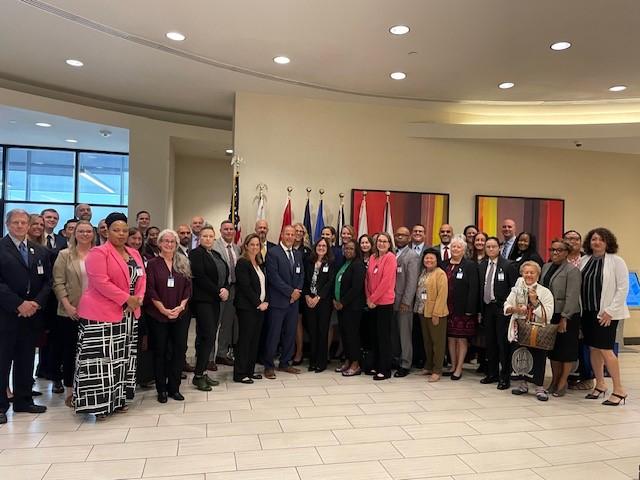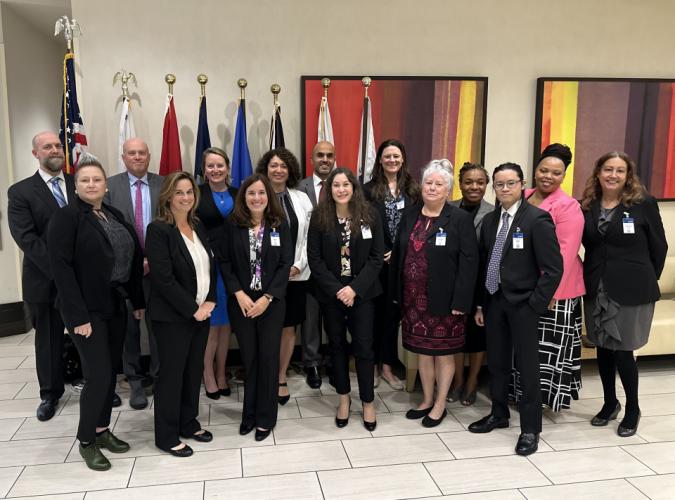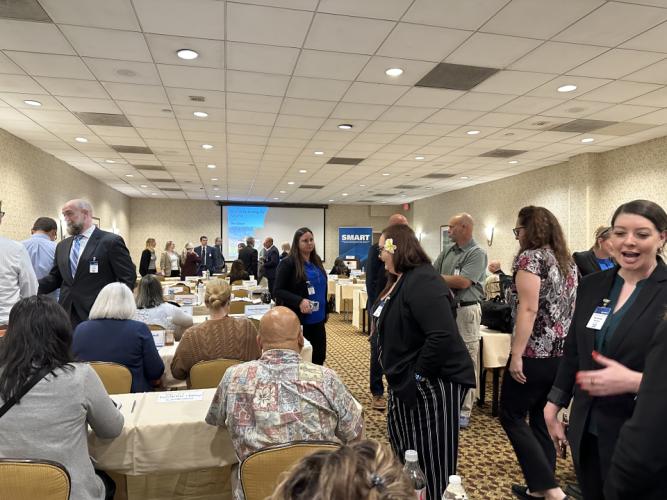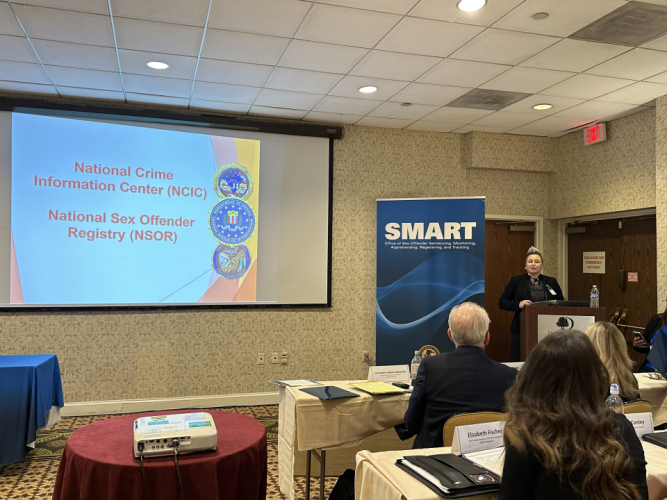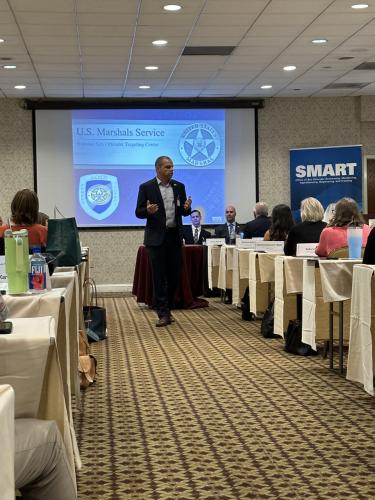The SMART Office hosted an in-person SORNA workshop for registration personnel from all states, territories, and the District of Columbia. The workshop included discussions of SORNA’s requirements and related issues, including international travel notifications, best practices related to registration and community notification, registrar safety and working with other agencies to improve community safety. SMART staff, federal partners and subject matter experts were on hand to present information, facilitate discussions and answer questions regarding SORNA, sex offender registries and best practices.
Past Events
2019 National Symposium on Sex Offender Management and Accountability
2016 National Symposium on Sex Offender Management and Accountability
2010 National Symposium on Sex Offender Management and Accountability
2009 National Symposium on Sex Offender Management and Accountability
2008 National Symposium on Sex Offender Management and Accountability
2007 National Symposium on Sex Offender Management and Accountability



